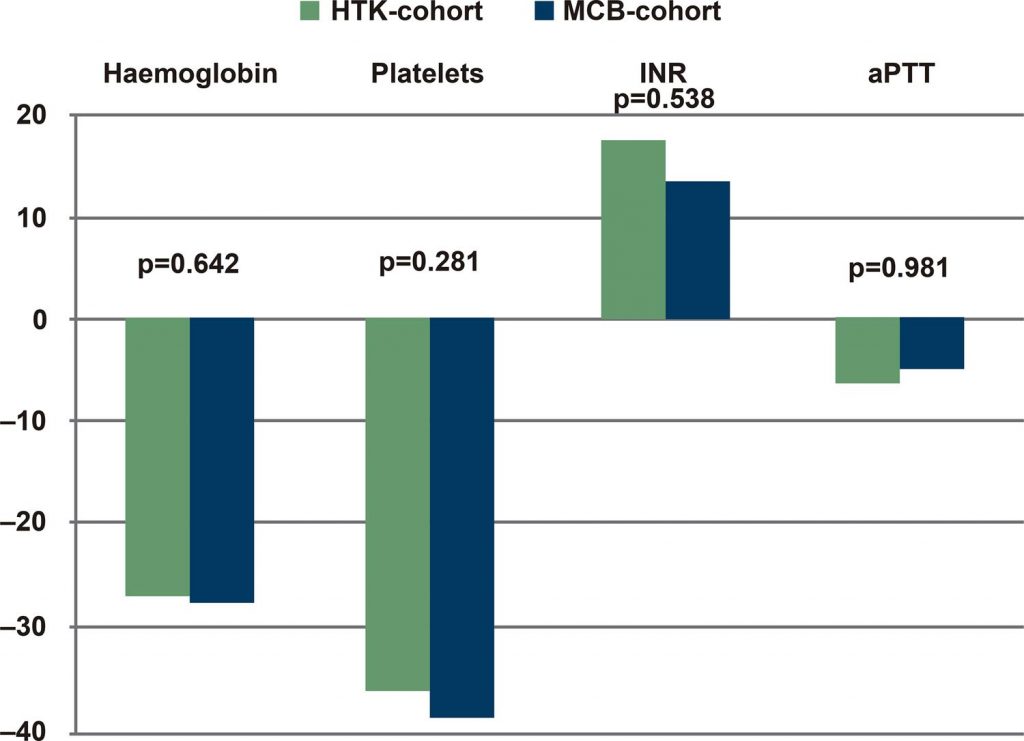Arq. Bras. Cardiol. 2020; 115(2): 241-250
Custodiol®-HTK Solution vs. Cold Blood Cardioplegia for Isolated Coronary Surgery Requiring Prolonged Cross-Clamp Time: A Propensity-Matched Analysis
This Original Article is referred by the Short Editorial "Myocardial Protection in Cardiac Surgery – What is the Ideal Method?".
Abstract
Background
Custodiol®-histidine-tryptophan-ketoglutarate (HTK) cardioplegia is widely used.
Objective
To compare the outcomes of isolated coronary surgery requiring prolonged cross-clamp time (XCT) in patients receiving a single-dose HTK or multidose cold blood (MCB) cardioplegia.
Methods
XCT was ≥120 minutes for 148 consecutive patients undergoing isolated coronary surgery (2009−2016). HTK and MCB cardioplegia were used in 38 and 110 cases, respectively. The two cohorts were compared on baseline characteristics, operative data, and early outcomes. Because risk profile and operative data differed significantly between the two groups, one-to-one propensity score-matched analysis was performed and 34 pairs were generated.
Results
While expected operative risk was higher in the HTK than in the MCB cohort (European System for Cardiac Operative Risk Evaluation II, p=0.005), there was no significant intergroup difference regarding in-hospital mortality (p=0.573). Overall (positive) postoperative fluid balance (p=0.003), number of blood transfusions (p=0.017), rates of acute kidney injury (p=0.002) and any major complication (p=0.019) were increased in HTK patients. These results were all confirmed even after propensity matching, though the difference was significant only for fluid balance (p=0.013) and quite significant for blood transfusions (p=0.054). In the HTK cohort, intensive care unit and hospital stay were longer both for overall (p=0.016 and 0.008) and matched patients (p=0.142 and 0.198). In matched patients, peak serum levels of cardiac troponin I were lower in the HTK cohort (p=0.122); serum levels of creatinine were lower in the MCB cohort (p=0.023).
Conclusion
For the patients of this study who required prolonged XCT, there was a trend towards poorer outcomes when HTK, rather than MCB cardioplegia, was used. (Arq Bras Cardiol. 2020; 115(2):241-250)
1,097

